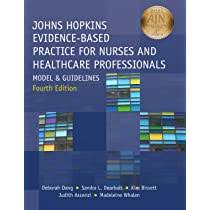NRS-493 Professional Capstone and Practicum Assignments
NRS-493 Professional Capstone and Practicum Assignments
NRS-493 Professional Capstone and Practicum Assignments
NRS-493 Topic 1 Identification of issue Significant to Nursing Practice I
The first step in developing an evidence-based, practice change proposal is to identify an issue or problem that is significant to nursing practice. In this topic, students will examine a health care clinical problem or an organizational issue and its implications to nursing practice.
NRS-493 Professional Capstone and Practicum Assignments Objectives:
- Create a plan for successful completion of the course.
- Integrate reflective practice in the form of a reflective journal.
- Demonstrate interprofessional collaboration during the creation of the capstone project change proposal.
Evidence-Based Practice, Step by Step: Asking the Clinical Question: A Key Step in Evidence-Based Practice

Read “Evidence-Based Practice, Step by Step: Asking the Clinical Question: A Key Step in Evidence-Based Practice,” by Stillwell, Fineout-Overholt, Melnyk, and Williamson, from American Journal of Nursing (2010).
Evidence-Based Practice: The Future of Nursing and the Role of Nurse
Read “Evidence-Based Practice: The Future of Nursing and the Role of Nurse,” by Jyothi, from International Journal of Nursing Education (2012).
Evidence-Based Practice: Share the Spirit of Inquiry
Read “Evidence-Based Practice: Share the Spirit of Inquiry,” by Arzouman, from MEDSURG Nursing (2015).
Guidelines for Undergraduate Field Experiences
Review the Guidelines for Undergraduate Field Experiences, located in the Student Success Center. This material contains important information for your clinical experience and the evaluation process.
Optional: GCU Library Webinars
For additional information, the following is recommended:
Review the webinar information offered by the GCU Library. From the “Webinars and Workshops: Webinar Calendar” page, select the “Category” tab and scroll down to the Nursing and Health Sciences selection. Webinar participation is optional.
URL:
http://libguides.gcu.edu/webinars
NRS-493 Individual Success Plan
Review the “NRS-493 Individual Success Plan” resource to familiarize yourself with the requirements for the Individual Success Plan (ISP) assignment in this topic.
Also Read:
NRS 493 Grand Canyon University Scholarly Virtual Tools Activities Discussion
NRS-493 Topic 5 Capstone Project Change Proposal Implementation Plan I
Scholarly Activities
Throughout the RN-to-BSN program, students are required to participate in scholarly activities beyond their employment in a clinical practice setting. Examples of scholarly activities include attending conferences, seminars, journal club, grand rounds, morbidity and mortality meetings, interdisciplinary committees, quality improvement committees, and any other opportunities available in an organizational setting, in the community, or nationally.
This submission should include how you were involved and contributions made to interdisciplinary initiatives. In Topic 10, students will submit a summary report of the scholarly activity and their involvement in any interdisciplinary initiatives. Students must use the “Scholarly Activity Summary” resource to guide this assignment.
This document describes the scholarly activity elements that should be included in a five paragraph summary. You may use this resource to help guide the preparation of the Scholarly Activities assignment, due in Topic 10.
NRS-493 Professional Capstone and Practicum Assignments Overview
This section consists of a single paragraph that succinctly describes the scholarly activity that you attended/participated in, the target market for the activity, and the benefit of the activity to you.
Problem
This section consists of either a short narrative or a list of bullet points that concisely identifies the problems the scholarly activity is designed to solve. Educate: What is the current state of the activity topic? Explain why this is a problem, and for whom is it a problem? Inspire: What could a nurse achieve by participating in the scholarly activity? Use declarative sentences with simple words to communicate each point. Less is more.
Solution
This section consists of either a short paragraph or a list of bullet points that concisely describes the solution to a proposed practice problem that the scholarly activity addressed and how it addresses the problem outlined in the previous section.
Opportunity
This section consists of short paragraphs that define the opportunity that the scholarly activity is designed to capture. It is important to cover the objectives and goals that were met. How will attending/participating in this scholarly activity help you grow as a nurse?
Program Competencies Addressed
This section consists of a list of program competencies that were addressed in this scholarly activity. Pleas euse the list from the ISP.
